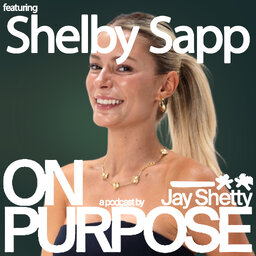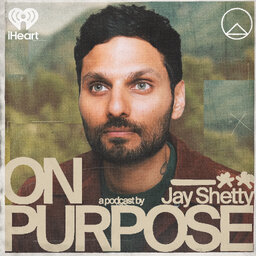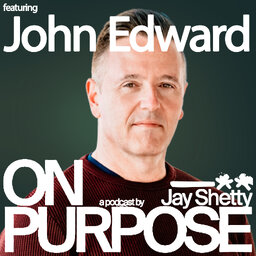2 Ways to Deepen Your Connection with Your Partner & The Key to Strong and Lasting Relationships
Today, I talk to John and Julie Gottman to discuss how to strengthen relationships. Dr. Julie and John share their thoughts on why we should stop being the person who we think our partners like and start being our genuine selves, what can we do to build and/or improve intimacy with our partner, and how to deal with the changes you and your partner go through without losing the connection and stay committed to each other.
Dr. Julie Schwartz Gottman is a co-founder and President of The Gottman Institute and co-founder of Affective Software, Inc. with her husband John Gottman. For over 40 years they have devoted their life to the research and practice of fostering healthy, long-lasting relationships through the training of clinicians and the creation of transformative products for couples around the world.
You can order my new book 8 RULES OF LOVE at 8rulesoflove.com or at a retail store near you. You can also get the chance to see me live on my first ever world tour. This is a 90 minute interactive show where I will take you on a journey of finding, keeping and even letting go of love. Head to jayshettytour.com and find out if I'll be in a city near you. Thank you so much for all your support - I hope to see you soon.
What We Discuss:
- 00:00 Intro
- 02:08 What qualities should we focus on when we start dating a person?
- 05:25 We are always molding ourselves in accordance to someone else’s preferences
- 11:09 The role of self-esteem and self awareness in healthy relationships
- 16:57 What happens when we limit ourselves in meeting people online
- 24:45 Why asking a ‘big’ question is important in building intimacy?
- 28:27 How do you deal with your partner and the constant changes they go through?
- 33:36 Finding new ways to stay connected with your partner
- 38:58 This is why you need to focus more on the positive aspects of your relationship
- 42:57 Expressing gratitude and explaining why you’re thankful ads more depth to the moment
- 50:00 Is there a way to know if a relationship can last?
Episode Resources
- The Gottman Institute
- The Gottman Institute | Facebook
- The Gottman Institute | Instagram
- The Gottman Institute | YouTube
- The Gottman Institute | Twitter
- The Gottman Institute | Books
Want to be a Jay Shetty Certified Life Coach? Get the Digital Guide and Workbook from Jay Shetty https://jayshettypurpose.com/fb-getting-started-as-a-life-coach-podcast/
In 1 playlist(s)
On Purpose with Jay Shetty
My name is Jay Shetty, and my purpose is to make wisdom go viral. I’m fortunate to have fascinating …Social links
Follow podcast
Recent clips

Sales Expert Shelby Sapp: The Simple Sales Framework You Can Use in Work, Money, and Relationships (Follow THIS Method to FINALLY Get The Life You Deserve)
1:41:31

Stop Saying Yes When You Want to Say No! (Follow THESE Clear Boundaries to Protect Your Energy)
23:09

John Edward: Stop Trying to “Move On” After Loss (Use THIS Daily Practice to Make Peace Without the Answers)
1:29:30
 On Purpose with Jay Shetty
On Purpose with Jay Shetty